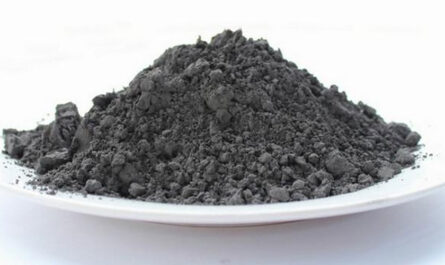Introduction
Silicon is one of the most abundant elements found in the earth’s crust. However, in its natural state silicon only exists combined with oxygen as silica or silicates. Silicon metal refers to elemental silicon obtained by reducing silica to a high purity level. The production of metallic silicon involves energy intensive processes to extract and refine silicon from raw materials like quartz rock. Though extensive, the processes yield a versatile metal with applications across many industries.
Properties of Silicon Metal
Silicon metal has unique physical and chemical properties that have made it indispensable for modern technology. Some key properties of silicon include:
Silvery-grey metallic appearance: Unlike its amorphous natural state, refined silicon takes on a shiny silvery-grey appearance like other metals. However, it remains a brittle material at room temperature.
Semiconducting properties: Silicon is a semiconductor, meaning its conductivity lies between typical conductors and insulators. This property enables its usage in electronics where precise control of electric current is needed.
High melting point: Silicon has a very high melting point of 1414°C, which allows it to retain its shape and properties even at very high temperatures encountered in industrial processes.
Chemically reactive: Though not as reactive as alkali and alkaline earth metals, Silicon Metal still readily reacts with halogens and acquires a protective oxide coating when exposed to air. Special precautions are needed during its production and storage.
Low density: At 2.33 g/cm3, silicon has a much lower density than most metals. This attribute proves advantageous for applications where weight is a design constraint.
Industrial Uses of Silicon Metal
Due to the above unique selling points, silicon finds extensive use in various industries as discussed below:
Aluminum Industry
As a deoxidizing and restoring agent, refined silicon is added to molten aluminum in aluminum production. Silicon removes dissolved oxygen and other gases from aluminum alloys to obtain the desired mechanical and corrosion resistance properties in final products. Around 80% of global silicon metal supply is consumed by the aluminum sector alone.
Solar Photovoltaic Industry
The semiconducting nature of silicon makes it irreplaceable in solar photovoltaic technology. Over 90% of currently installed solar panels worldwide use silicon wafers to convert sunlight into electricity. Silicon’s high production efficiency and stability have maintained its prominence in the fast-growing renewable energy market.
Electronics Industry
Being the second most conducted element after copper, silicon forms the basis for modern electronics. It is used to produce computer chips, integrated circuits, and other semiconductor devices that power all digital devices globally. The electronics industry has been a major driver of rising silicon demand over the past few decades.
Silicones and Silicone Products
Silicon is a basic raw material for producing silicones – polymers with a variety of applications across industries like construction, personal care, automotive and many others. Common silicone products include adhesives, sealants, lubricants, coatings and elastomers with excellent properties like weather resistance.
Other Niche Areas
Besides the major sectors, silicon finds specialized applications in areas like metal casting, concrete production, deoxidizing agent in steel manufacturing, desiccant for moisture absorption and more. Ongoing research has yielded new advanced materials based on silicon’s properties with promising applications.
Global Production and Trade
China is currently the world’s largest producer as well as consumer of silicon metal with an annual production capacity exceeding 1 million tons. Other major producing countries include the United States, Kazakhstan, Norway and Brazil. Most international trade occurs between these countries and major Asian consumers like South Korea, Japan and Taiwan. The global demand for high-purity silicon continues to experience steady growth driven by expanding use in innovative technologies.
From its natural mineral state to refined elemental form, silicon has emerged as one of the most important industrial metals of the modern world. Its unique physical and chemical attributes have enabled widespread and increasing adoption across strategic sectors driving global economic and technological advancement. With ongoing optimization of production processes and development of new applications, silicon is poised to retain its prominence among base metals with diverse end use well into the future.
*Note:
1. Source: Coherent Market Insights, Public sources, Desk research
2. We have leveraged AI tools to mine information and compile it.

